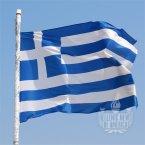
By Dr. Christos C. Evangeliou
Professor of Hellenic Philosophy
Honorary President of IAGP The appellation “Western” sounds inappropriate when applied to Greece and its place in history. For one would be taxed to point out, in the globe which revolves round an axis and makes day and night, where on earth “the East” stops and “the West” begins.
Even if we were to follow the conventional wisdom and allow that Iceland and England, for example, are definitely in the West, while Korea and Japan are definitely in the East, where shall we rightfully place median countries like Greece and India? Both are to the East of the first pair, but to the West of the second pair. One may suppose that the problem can be easily solved by comparing the two countries directly to each other, in which case it can be said that India is definitely in the East and Greece in the West relative to each other. But perhaps the situation is more complex.
For, even if the Indians were to go along with this solution, I suspect that some aware Greeks would have some difficulty accepting it for at least the following reasons. Geographically, Greece belongs to “Eastern Mediterranean.” Since ancient times it occupies the tiny peninsula and the beautiful Aegean Sea where three continents meet: Africa, Asia, and Europe. This fact perhaps explains why the Ancient Hellenes conceived of the strange notion that the center of the world, “the navel of the earth” as they used to say, was right there in the middle of Hellas, at one peak of Parnassus. It was there, at the holy shrine of Delphi, where Dionysus, the god of music and dance, rested from his long journey from India through Asia and Africa, according to ancient legend, and was welcomed by his brother Apollo, god of light and reason. In this symbol¬ic way, the conventional East and West were somehow harmonized. From their harmonious union the classical Hellenic civilization emerged as a ripe fruit of the human spirit and took its rightful place among other ancient civilizations of the great rivers: the Nile, the Euphrates, the Indus, the Ganges, and the Yangtze.
In terms of geography, then, the Modern Greeks, like their ancestors, or like any sensible people, may think of themselves as “Westerners” when they face towards the rising sun, but when they turn around and face the setting sun they may consider themselves as “Easterners” or at least as non-Westerners. Even if we were to turn to history for assistance, we would find that it provides no greater help than geography for the correct characterization of the rightful place of Greece and Greek culture: Western or Eastern? For it may be both of these, in some sense, or indeed neither.
Historically speaking, from the time of the rise of Rome to political power in the third century BC to the Italian Renaissance in the fifteenth century AD, Classical and Hellenistic Greece (and the Byzantine Christian Empire) had invariably identified itself with the culturally more refined East. This was in conscious opposition to the “Latin West” which, to Hellenic minds, appeared simply as a synonym of barbarity.
So, when the Roman Empire was divided into two parts at the end of the fourth century (395 AD), the division created a Latin (Western) and a Greek (Eastern) Roman Empires. Ironically, it would seem, history was to repeat itself in the eleventh century (1054 AD), when a schism occurred in Christendom, between the Catholic Church which was, not surprisingly, “Latin and Western,” and the Orthodox Church which was, again not surprisingly, “Greek and Eastern.” The historical considerations seem to tip the balance of placing both Ancient Hellas and Christianized Greece definitively toward the East in the artificial division of the world into East and West.
But this is not the end of the story. Since the Crusades (11th-13th centuries), and more so with the rise to prominence of such European powers as France, England, and Germany, Northern Christians thought that they would gain some respectability if they presented themselves as “inheritors” of the classical world and its brilliant culture. Thus they boldly claimed as their own not only the Latin, but also the Hellenic classical heritage, which they began at that specific time to characterize as “Western” opposing it to the Eastern Orthodox world and the Islamic world, as “the Orientals.”
It is true that some intellectually awakened people have remained skeptical on the applicability of the appellation “Western” to Hellenic history and culture, and about the truthfulness of the European claim of exclusive right to classical inheritance. However, the Modern Europeans were successful in persuading almost the entire world that there was no real difference between themselves, in the assumed role of colonial imperialists, and the creators of classical civilization and Hellenic culture.
The unfortunate result of European aggressive activity in this regard has been that the Ancient Hellenes are uncritically identified as “Westerners” now. They are placed in the same basket with the British, French, Spanish, Dutch, and German colonialists of Africa, America, and Asia. This is done not only by the Europeans and their historians of “Western History,” but also by many African, Asian, and Latin American thinkers and native peoples struggling for cultural identity and social reconstruc¬tion. This outcome is certainly unfair to the Ancient Hellenes, but it is also unjust to scholars in the African and Asian nations who, as a result of the European exclusive claim to the Hellenic heritage, do not readily perceive the falsity of such claim at their expense. They thus deprive themselves of a valuable ally, the treasures of classical literary paideia, in their pedagogical, political, cultural, and intellectual endeavors. This ungrounded European claim is truly a tragic irony, if not a tragedy.
This being the case, the time may have come for the truth to be told for those who may listen. Well, then, the achievements of the Ancient Hellenes do not belong exclusively or even primarily to the Christian Europeans or to Islamic Asians. Rather, they belong to the world at large and to mankind as a whole, especially to those remnants of pre-Christian and pre-Islamic traditions and cultures. With them the Ancient Hellenes had many affinities, such as love of human wisdom, as opposed “divine wisdom,” and a tolerant worship of many divinities, even goddesses, playfully. This is needed today to counter the folly of a masculine monotheism and its concomitant religious fanaticism.
One may sympathize with the late Constantine Karamanlis, who found it expedient to claim in his political rhetoric that “Greece belongs to the West”. He believed that Greece would be immune to Turkish threats and to military dictatorships in the future, if it became a member of the European Union, which was under formation at that time. The current economic crisis in the EU and, more ominously the way some members of the Union, especially Germany, have treated Greece and its unpaid debt, clearly indicate that Greece was economically and historically unprepared for such adventure.
In fact, Greece belongs neither to West nor to East, but constitutes a special case, which is unique in history in terms of natural beauty and cultural achievements. The sooner the Greeks understand this unique treasure that the Hellenic Gods have placed in their hands as its trustees, the better would be for them, for Europe and the World. If they decide to stay in the EU, they should be prepared to accept not only the loss of sovereignty, which is implicit in economic and political unions, but also the loss of beautiful Hellenic language and their national Greek and religious Orthodox identity. In this regard, Greece can learn a lesson from Israel and its will to survive historically.







